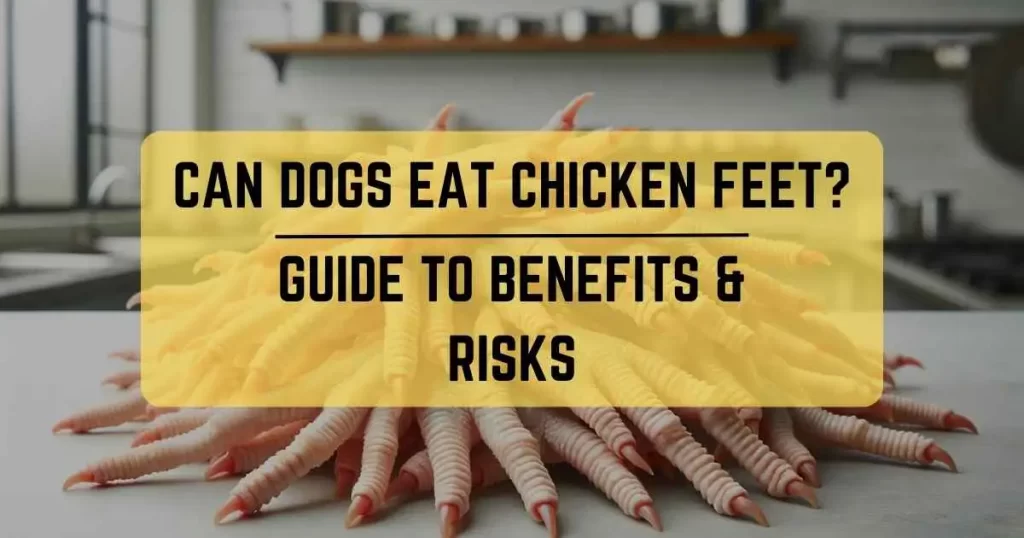
Many dog owners often find themselves wondering if it’s safe to feed their furry companions chicken tenders.
After all, chicken is a common ingredient in many commercial dog foods, but when it comes to indulgent treats like fried chicken tenders, some caution is warranted.
Let’s delve into the safety, benefits, and risks of feeding chicken tenders to your canine companion to help you make an informed decision.
Can Dogs Eat Chicken Tenders?
Yes, dogs can eat chicken tenders, but they should be plain, without any seasonings or sauces. Always ensure they are cooked thoroughly to avoid the risk of bacterial infections like Salmonella. Be sure to remove any bones to prevent choking or digestive hazards.
Benefits of Chicken Tenders for Dogs
While chicken tenders are not the healthiest option for your dog, they do offer some benefits when consumed in moderation. Here are a few reasons why some dog parents may consider offering this treat:
- Source of Protein: Chicken breast, the main component of chicken tenders, is an excellent source of protein. It can help support your dog’s muscle development and overall health.
- Low in Fat (if Unseasoned): Unseasoned, plain chicken tenders can be low in fat, making them a better choice than some other fried foods that might upset your dog’s digestive system.
Risks of Chicken Tenders for Dogs
Feeding your dog chicken tenders also comes with certain risks that dog owners should be aware of. These risks include:
- High in Fat (if Fried): Deep-fried chicken tenders are high in fat, which can lead to pancreatitis, a painful inflammation of the pancreas in dogs.
- Breading: The breading on chicken tenders can be hard to digest and may cause gastrointestinal upset.
- Seasoning: Many chicken tenders are seasoned with ingredients like garlic and onion, which can be harmful to dogs in even small amounts.
What If My Dog Ate Chicken Tenders?
If you find yourself in a worrisome situation where your dog just ate chicken tenders, it’s essential to assess the potential risks and act accordingly. While chicken itself isn’t toxic to dogs, several factors come into play.
Firstly, if the tenders contain bones, especially cooked bones, these can splinter and cause severe intestinal blockage or even injury. In the case of deep-fried or breaded tenders, the breading can be difficult for your dog to digest, leading to an upset stomach.
Furthermore, raw chicken tenders carry the risk of salmonella, a bacterial infection that can lead to gastrointestinal upset. The seasoning or spices used in the chicken tenders, like garlic powder, could also cause mild to severe health issues, especially if your dog is allergic to chicken.
On the brighter side, if the chicken tenders were unseasoned, uncooked, and free of breading, the risks are considerably lower. Your dog may experience an upset stomach due to the high fat content, but it’s less likely to be a severe issue.
In any case, monitoring your dog’s behavior and consulting with a veterinarian is always a wise course of action when your pet has consumed something outside their usual diet.
How to Feed Chicken Tenders to Dogs Safely?
If you choose to treat your dog to some chicken tenders, follow these safety guidelines:
- Unseasoned and Thoroughly Cooked: Opt for plain, unseasoned chicken tenders that are thoroughly cooked to minimize the risk of digestive issues.
- Small Portions: Feed chicken tenders in small amounts, as a full serving can be too fatty for most dogs.
- Remove Breading: If possible, remove the breading to make the treat easier to digest.
Alternatives to Chicken Tenders
If you’d rather not risk feeding your dog chicken tenders, there are plenty of alternative treats that are both safe and healthy for your furry friend. Consider these options:
- Plain Cooked Chicken: A piece of cooked chicken breast, without seasoning or breading, is a simple and nutritious treat for dogs.
- Raw Chicken Strips: For those who prefer raw food diets for their dogs, raw chicken strips can be an option.
- Commercial Dog Treats: Commercial dog treats are specially formulated to be safe and healthy for dogs, offering a wide variety of flavors and options.
Final Thoughts
In conclusion, chicken tenders can be safe for dogs if prepared and served in moderation, unseasoned, and without breading.
However, their high-fat content and potential for gastrointestinal upset make them less than ideal as a regular treat. It’s always essential to prioritize your dog’s health and well-being by offering a balanced diet and choosing treats that won’t harm their digestive system.
While an occasional chicken tender might bring joy to your canine companion, it’s crucial to consider the potential risks and benefits before adding them to your dog’s regular diet.
Frequently Asked Questions
Can Puppies Eat Chicken Tenders?
Yes, puppies can eat chicken tenders, but it’s crucial they are cooked properly and served without seasoning, breading, or sauces that can be harmful. Always remove any bones to prevent choking or digestion issues. Moderation is key to keeping their diet balanced.
Can Dogs Eat Fried Chicken Tenders?
No, dogs cannot eat fried chicken tenders. They contain unhealthy fats and could potentially have bones, which are a choking hazard and harmful to a dog’s gastrointestinal tract. Fried foods can lead to obesity and pancreatitis in dogs over time.
Can Dogs Eat Chicken Tenders Raw?
No, dogs should not eat raw chicken tenders. Raw chicken can contain harmful bacteria like Salmonella or Campylobacter, which are health risks for dogs. It’s always safer to provide them with fully cooked chicken without any added seasonings or sauces.
Can Dogs Eat Baked Chicken Tenders?
Yes, dogs can eat baked chicken tenders, but they should be plain, without any seasoning, batter, or sauce. It’s also vital to remove the bones, as they can cause choking or internal injuries. Moderation is key to avoiding digestion issues.
Can Dogs Have Air-Fried Chicken Tenders?
Yes, dogs can have air-fried chicken tenders but they should be unseasoned and unsalted. It’s important to remove any bones to prevent choking or internal damage. Always serve in moderation as too much can lead to obesity or digestion issues.









